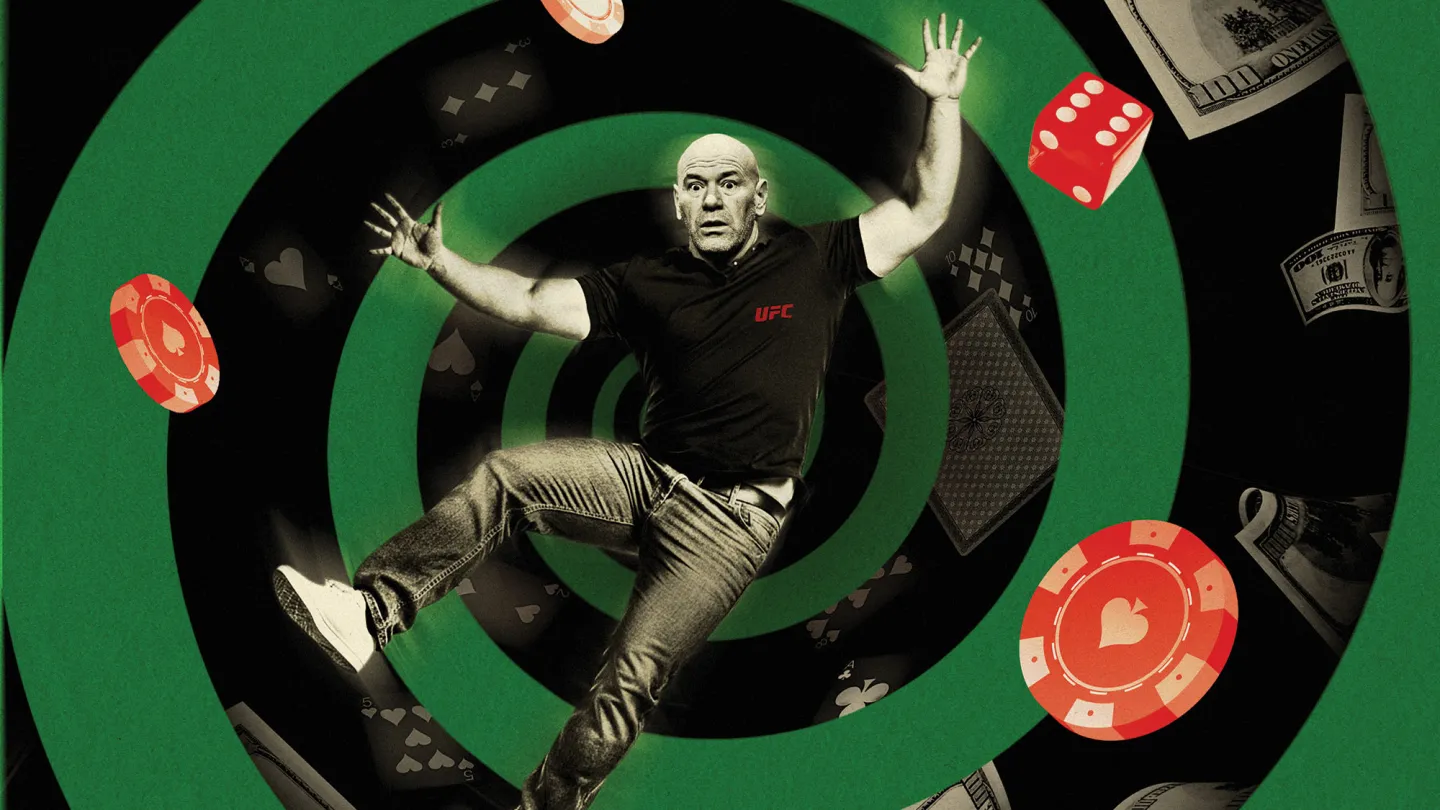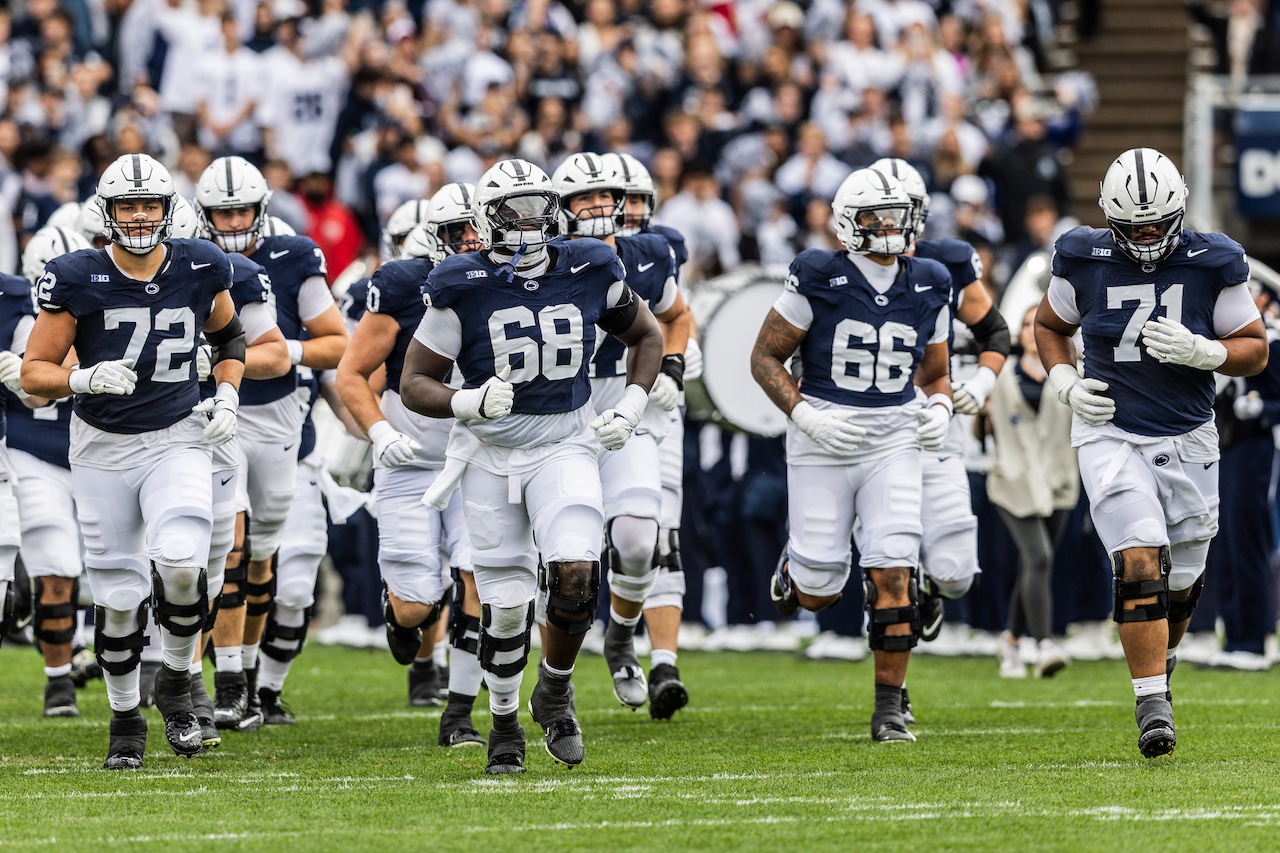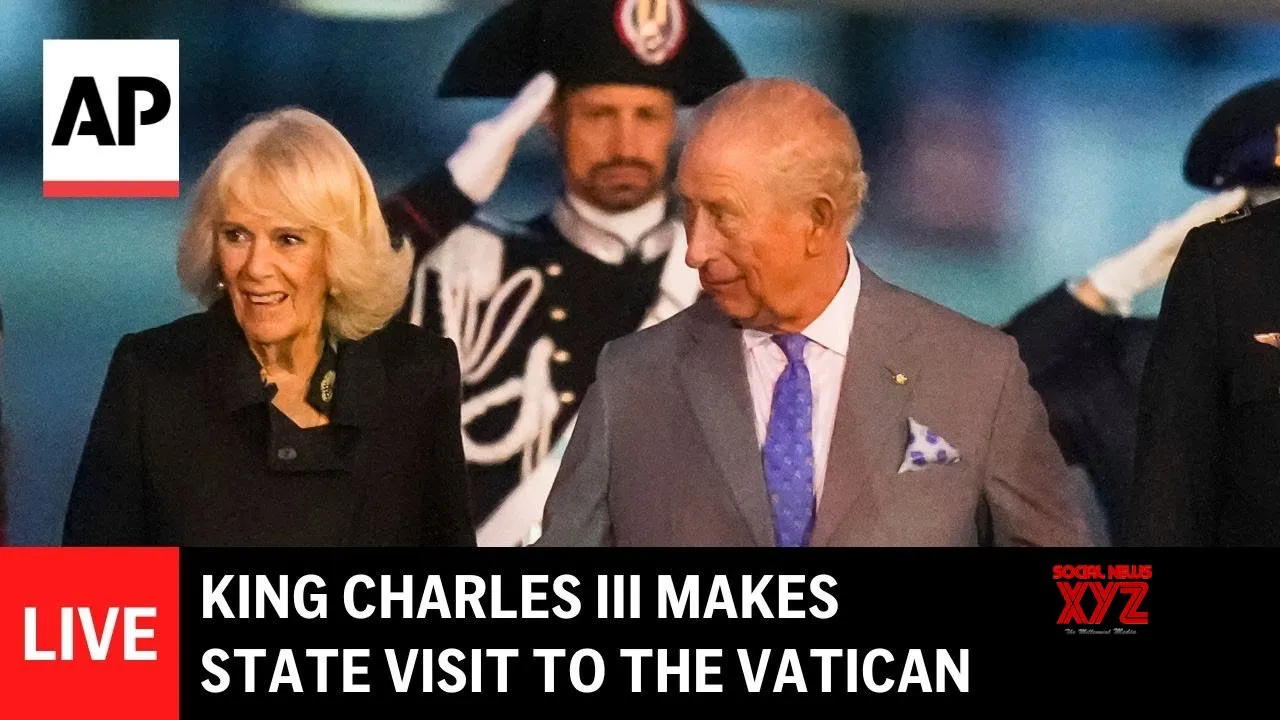Copyright The Hollywood Reporter

Recently, a Netflix production crew has been following Dana White around Las Vegas for a yet-to-be-announced unscripted project about his wild gambling exploits. He’s the ideal protagonist: a voluble, larger-than-life high roller whom its cameras have caught on at least one occasion up more than $800,000 at the Bellagio. The Ultimate Fighting Championship boss — and Donald Trump confidant — has become a folk hero for his storied gambling sessions at Sin City casinos. His adrenalized exploits, primarily at blackjack, are much discussed across the modern-day saloon culture, often dubbed the manosphere. During one podcast appearance alongside White, Mike Tyson marveled at how “prolific” he is as a wagerer and how often he has been banned from the house. White clarified that he’s never been told he can’t play, only that “they won’t let me play at the limits that I want.” On his own show, Joe Rogan, a longtime UFC color commentator, recalled with slack-jawed awe a tale of “my night watching Dana White gamble” at Red Rock, detailing how White got himself into, and then back out of, a $600,000 hole. “My anxiety is through the roof” just discussing the episode, he said. “I’m fucking tweaking.” White told a similarly astonished Grant Cardone, a finance influencer, that he had “walked out of the Venetian one night with a trash bag full of money,” worth millions of dollars. White has spoken of winning more than $26 million at Caesars Palace playing baccarat in the first few months of 2024; “I fucked up their entire [financial] quarter,” he told Shannon Sharpe. Lately, though, it’s an epic cold streak that’s had White in the news. Trade outlet Casino.org reported in September that the mogul, whose net worth Forbes estimated earlier this year at more than $600 million, owes between $25 million and $50 million to Red Rock in gambling debts. THR sources peg the unpaid sum closer to $30 million. It’s unclear when the Red Rock debt first accrued, or the state of negotiations to resolve it; for eight-figure losses, a discount of 20 percent or more might be brokered to maintain loyalty with a preferred client. “This story is pure clickbait bullshit,” White says in a statement to THR. “Everything about this story is completely untrue.” He continues, “But of course media doesn’t care about facts, they care about clicks. This is exactly why I always say you can’t believe ANYTHING you read.” What’s notable here isn’t only how much is owed by White. Plenty of whales end up that deep in any given year. It’s whom he owes. Red Rock is part of the public casino company Red Rock Resorts, run by brothers Lorenzo and Frank Fertitta, White’s longtime friends and business partners, first in the UFC (he made them billions) and more recently in a slew of new ventures. This makes White a one-of-one Vegas VIP. White insists that Red Rock Resorts “confirmed” that the thrust of this coverage is inaccurate. Yet the firm itself, which as a Nevada gaming license holder is subject to some of the most stringent truthfulness requirements in U.S. business regulation, especially regarding public representation of its operation, declined to respond to requests for comment from both Casino.org and THR. *** White has been transparent about his outsized betting habit, which has become a key part of his maverick persona even as he and his league become ever more intertwined with other public companies — Mark Zuckerberg, a mixed martial arts fan, appointed him to Meta’s board in January, while one of the first transactions David Ellison announced after closing his Paramount deal over the summer was a $7.7 billion partnership to stream UFC events. (The latter was seen ringside with White and Trump in the run-up to his studio acquisition.) White has referred to himself as a “degenerate” gambler and explained, “This is like my part-time job: I work in the UFC all day and play cards at night.” Addict or mere aficionado, he loves the action, once having hired a private blackjack dealer to run a table for him on his yacht anchored off the Amalfi Coast. “I can’t go on vacation without playing,” he says with a laugh in a video marking the occasion that has since circulated online. “The sickness is real.” White has a reputation in his hometown of Las Vegas — and especially among the top brass at casinos — for his style of blackjack play. He’s what’s known in the business as a short stop, turning up frequently but staying for only a few high-stakes hands per session — and walking away if he’s ahead. This sets him apart from most of the other bettors at his altitude, of which there are a few dozen, who visit from out of town on occasion and gamble for marathon stretches. “He’s playing smart, and casinos don’t want that kind of action,” says another high roller who knows White. Gaming executives much prefer the latter category of client (comping them suites and steak house dinners to encourage their patronage) because, with enough time at a table, the house’s statistical edge wins out. White explained on Sharpe’s 2024 podcast that his MO of laying just a few big-dollar hands, often well into the six figures, is what has gotten him barred. “The way they ask you to leave is they drop your limit so you can’t bet that much anymore,” he explained. “[The Palms] did it, the Mirage did it to me, the Wynn is the worst. … They’re the biggest pussies on the Strip, for what a big casino that they are. Caesars Palace, the Bellagio and the Venetian are the three real casinos in town that you can play big.” He added, “They don’t sweat you, they don’t act weird when you win.” White discussed his on-again, off-again Palms ban with the Las Vegas Review-Journal in 2012. After he won $2 million at the casino, officials asked him not to play there. Two years prior, White had retaliated to an earlier ban by the casino by pulling UFC-related events from the resort, which had been hosting fight-night cards at its 2,500-seat theater. That standoff lasted nearly two years, through multiple management regimes. (After this feud ended, the Fertittas owned the Palms for half a decade.) White’s frustration over blackjack betting rules and bans likely spurred his recent shift to playing baccarat, which is known for its far higher limits. (In July, he reportedly won $1.2 million at the Fontainebleau at the game.) Explains one VIP handler: “Dana would play $75,000 [blackjack] hands, and it wasn’t enough. Now it’s $300,000 in bac. It’s escalating. He needs more of a rush.” A former casino executive agrees, explaining that the difference between the games is “like switching from cocaine to heroin.” *** Lorenzo Fertitta, who’s known White since they were classmates at a Las Vegas parochial school, has described the brothers’ relationship with White as “best friends,” practically family, explaining that they speak and even see each other daily, mixing shop talk with workouts. White has been proudly public about how close he is with the Fertittas, in particular Lorenzo. In 2009, he told the Las Vegas Review-Journal, “Lorenzo is moving [homes], so now I have to think about finding a new place to live where he is,” he said. “That’s how sick and twisted we are. We really are that close.” In 2024, he explained to Sports Business Journal, “We keep each other in the loop on every little aspect and detail of the business, and it’s why we work so well together,” adding that the trio’s ventures are fully intertwined: “My money sits with their money.” The Fertittas control Red Rock Resorts, a public hospitality company whose portfolio includes locals-focused Station Casinos, which their father founded half a century ago. The brothers, Sin City royalty, invested early in self-made White’s vision for professionalizing the mixed martial arts world by purchasing UFC for $2 million in 2001. At the time, White had been a Vegas gym owner and managed fighters like Tito Ortiz and Chuck Liddell. Soon, to expand MMA’s national exposure, they struck a deal with Spike TV to air competition series The Ultimate Fighter. (It’s now broadcast on ESPN+.) Fifteen years later, the group sold UFC to Endeavor for $4 billion, with White staying on as a salaried president. In the years after the Endeavor sale, White and the Fertittas have partnered on new ventures, including action sports company Thrill One, youth athletics operator 3Step and, most prominently, controversial upstart Power Slap League, in which competitors take turns smacking each other with an open hand until one of them is knocked out. The Brain Injury Association of America has called for Power Slap to be banned. TBS aired a season of Power Slap in 2023, which was then canceled following TMZ‘s publication of a phone video in which White slaps his wife during an argument at a nightclub. He later apologized. Endeavor, whose shares fell after the footage was released, didn’t comment on White’s actions at the time; neither did the UFC’s current broadcast partner, ESPN, or the Fertittas. *** The resolution of casino debts is often its own drama, whether in liquidating assets or arriving at complex arrangements for payment. Exhibit A: In July 2014, movie producer Joel Silver paid $1.7 million to the Wynn on behalf of his friend, former NBCUniversal vice chairman Ron Meyer. At the time, Silver had received a $4 million advance from NBCUniversal for the Liam Neeson action film Non-Stop. Both men denied the advance was the source of the payment. (The corporation later launched an investigation.) Meyer was forced to leave the company in August 2020. More recently, Meyer was sued by an Indian casino in Connecticut for nearly $2.8 million in unpaid debt. White’s unpaid marker presents a quandary for Las Vegas, and particularly for the Fertittas. “With Dana, you’re talking about someone who’s untouchable,” explains the fellow high roller. “But his gambling’s become a sore subject for these public companies — TKO [formed in 2023 through the merger of UFC and WWE], Red Rock Resorts and now Paramount.” A source tells THR that the media company, whose all-important streaming deliverables will now be tied to White’s decision-making, and which is working on several gambling and livestreaming projects with the UFC, discussed his personal betting with him in September. Paramount didn’t respond to a request for comment. (This week, news broke of a UFC fight-fixing scandal in Las Vegas, which prompted several sportsbooks including Caesars to refund bets; White has said he’s been speaking with the FBI and acknowledged “it definitely doesn’t look good [for one of the fighters].”) The VIP handler observes that White’s outstanding debt is “a world-class number, just elite-level losing,” and that “if you or I owed Red Rock $100,000 and didn’t pay, the DA’s office would be involved.” Yet the Fertittas have discretion over collection. It’s their shareholders who hold them accountable, and in the case of Red Rock’s stock ownership, that means they are answerable largely to themselves. “Ultimately, this is up to management to decide,” says attorney Behnam Dayanim, whose regulatory and compliance clients include gaming firms. Given their mutual ties and their respective riches, a debt in the tens of millions might not mean much to White or the Fertittas. However, regulators may have their own view about ensuring the UFC head fulfills his obligation to pay up, especially since they’re due their own cut. “A licensed [casino] company has a fiduciary duty to the state of Nevada,” says Richard Schuetz, a seasoned gambling industry executive and veteran of multiple territories’ gaming commissions. “The Nevada Gaming Commission receives a percentage of revenue — 6.75 percent. It wants to protect integrity. It also expects its piece of the action.”



